Launch of the IRDR Centre for Gender and Disaster, 7 March 2018
6 November 2017
Wednesday 7th March 2018, 18:00-21:00 Invited Speakers (see below): Wilkins Gustave Tuck Lecture Theatre, 18:00-19:30 Networking Reception: North Cloisters, 19:30 - 21:00 This event is open to the public and free to attend, but you need to register via Eventbrite Talks from invited speakers, 18:00 - 19:30 in the Gustave Tuck Lecture Theatre.
Speakers (click each name for a speaker bio and talk theme):
- Maureen Fordham, UCL IRDR Centre for Gender and Disaster
-
Chair, Launch of the IRDR Centre for Gender and Disaster
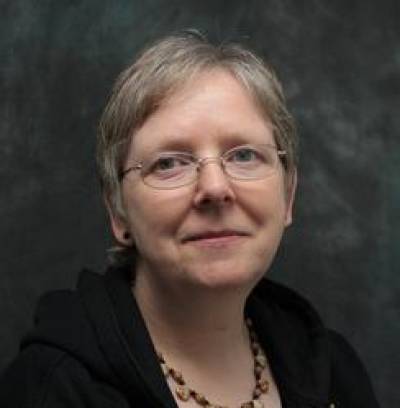
Maureen is a Professor of Gender and Disaster Resilience. She has been researching disasters for 30 years and is an expert on community-based disaster risk reduction and vulnerability analysis, focusing on the inclusion of marginalised social groups in disaster risk reduction, particularly women and girls. She was a founding member of the Gender and Disaster Network in 1997 and is its Coordinator (www.gdnonline.org). She will be the first Director of the IRDR Centre for Gender and Disaster.
- Cecilia Aipira, United Nations Development Programme
-
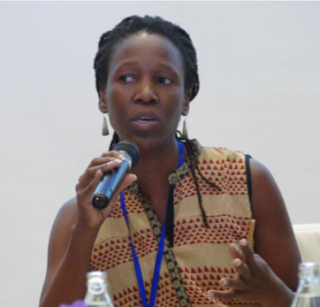
Cecilia Aipira has worked for the United Nations system for the past 11 years, most of which has been in Asia and the Pacific Region. Her focus has largely been on climate change, disaster risk reduction and gender equality. She is currently a Disaster Risk Reduction Regional Advisor for UNDP Regional Hub for Africa.
Cecilia will focus on the investment gap in gender equality in disaster risk reduction and adaptation actions, and the need for gender and disasters research to make a business/economic case for more investments in gender equality to national and international decision makers on DRR and adaptation.
- Ellie Cosgrave, Deputy Director, City Leadership Lab, UCL
-
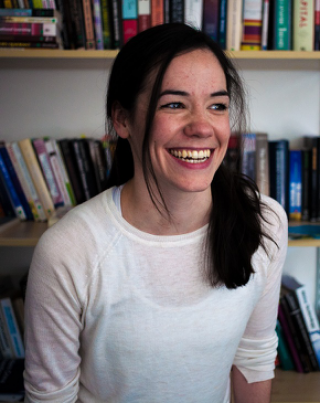
Ellie is Lecturer in Urban Innovation and Policy at the City Leadership Lab at UCL. Her main research interest is in the role engineers have in designing inclusive cities and the ways in which engineering practice needs to evolve to meet 21st century social needs. Particularly, she focuses on the gendered implications of city design.
Ellie will draw on her research "a gender lens in engineering practice" to highlight some of the ways in which physical infrastructure impacts on different groups within the city. She will also touch upon how male-dominance in the engineering industry limits the range of possible outcomes of design.
- Virginie Le Masson, Overseas Development Institute
-
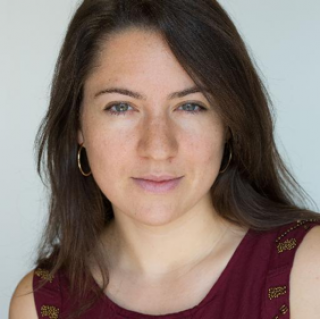
Virginie Le Masson is a research fellow at the Overseas Development Institute, a London-based think tank on humanitarian and development issues. Her research investigates the social vulnerability dimension of disaster risk reduction and climate change mitigation and adaptation. Her more recent work also aims to explore the linkages between gender-based violence, disaster risks and resilience. With regular assignments in both south Asia and Africa, she delivers field-based research, vulnerability assessments and gender-awareness trainings, in collaboration with civil society organisations, NGOs, the Red Cross/Red Crescent movement and United Nation agencies.
Virginie will present the latest findings from ODI's research in Chad on Gender Based Violence and Resilience
- Sara Hall, Stonewall
-
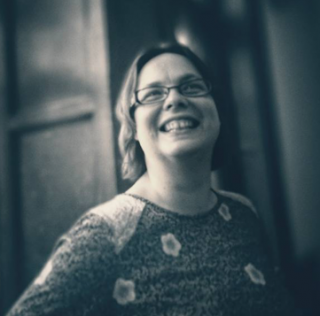
Sara is Stonewall's Head of International Campaigns and Policy. She is responsible for delivering and coordinating Stonewall's International Strategy focused on policy, advocacy and changing hearts and minds.
Before Stonewall, Sara held a variety of policy and campaigns roles, including positions at Amnesty International and most recently at Save the Children.
Sara will highlight Stonewall's international work and how they work with LGBT activists from across the world. She will reflect on the lack of inclusion in disaster response that is a theme they hear often from LGBT movements in affected areas.
- Sunil Pant, Blue Diamond Society, Nepal
-
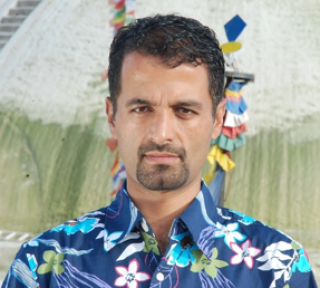
Sunil Baby Pant is the first openly gay politician (Member of Parliament and Constituent assembly from 2008-12) in Nepal, and the head of the Blue Diamond Society (BDS) - the only gay rights group in Nepal. The NGO works on human rights, sexual health and HIV/AIDS for sexual/gender minorities in Nepal.
Sunil will share information on the lack of inclusion and preparedness by Nepalese authorities and departments on relief programs in terms of covering sexual minorities after 2015 earth quake in Nepal and also after the 2008 flood in eastern Nepal. The issues ranged from toilet facilities, tents facilities, binary only distribution system, even lack of hospital beds for those who did not identify man or woman... stigma, discrimination and more.
- Jacqui Gallinetti
-
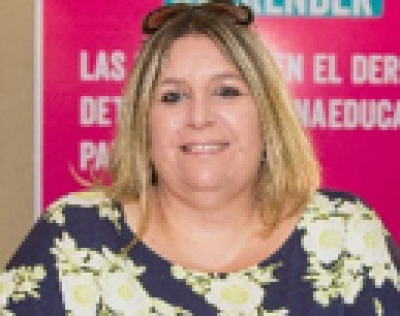
Jacqui is a qualified lawyer with 24 years of experience, eight of which were as a practicing attorney in South Africa. After leaving legal practice she ran a child rights research and advocacy unit at the Dullah Omar Institute of Constitutional Law at the University of the Western Cape before joining the Law Faculty to lecture child justice law, constitutional law and international human rights law. She is currently Director of Research and Knowledge Management for Plan International responsible for global research, monitoring and evaluation and learning. She has published on a range of child rights issues including juvenile and restorative justice, child protection and the African human rights system.
Jacqui will present Plan's shift to gender transformative programming as part of its humanitarian response and building evidence to support that through various key studies which will feature high level findings from:
- State of the World Girl's Report: Double Jeopardy
- Findings from other Plan studies such as Girls take the Lead (Rwanda)
- Glimpse into initial findings from a series of studies based on a research framework developed by Monash University on insecurity and adolescent girls in protracted crises: (South Sudan, Rohingya refugees in Cox's Bazaar and Lake Chad.)
- Ilan Kelman, UCL IRDR and IGH
-
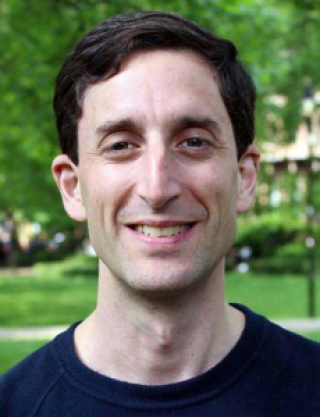
Ilan Kelman is a Reader in Risk, Resilience and Global Health at University College London and a Professor II at the University of Agder, Norway. His overall research interest is linking disasters and health, including using gender to bridge the topics.
Ilan will close the event by bringing an IRDR perspective - why have a gender and disaster centre at UCL IRDR? He will bring together the speakers' key messages to add to the new research and action agenda which the centre will pursue.
The new Centre for Gender and Disaster, part of the Institute for Risk and Disaster Reduction (IRDR) at University College London (UCL), aims to develop awareness of and responsiveness to gender for risks and disasters through excellence in research and teaching.
The Centre will:
- Expand upon everyday understandings of 'gender' to move beyond simplistic binary categorisations towards a more fluid comprehension of identities, adopting an intersectional approach;
- Define 'disaster' broadly to include events and processed triggered by natural hazards, humanitarian crises, as well as internal or cross-border conflicts.
- Combine gender and disaster research with disparate subject strands, in some of which gender is often absent or of low perceived salience.
The Centre will focus initially on 5 broad subject pillars, some of which align with UCL's Global Challenges:
- Social Justice, Equality and Equity;
- Engineering & Infrastructure;
- Transformative Technologies;
- Data (data collection, validation of data, gender analysis, big data); and
- Health & Wellbeing (working with our sister Centre for Gender and Global Health <http://ighgc.org> but with a specific focus on the DRR and humanitarian domains).
The Centre <www.ucl.ac.uk/rdr/cgd>will develop and support challenging research questions and evidence-based research and teaching. It will provide a connection space for researchers, students, policy makers, decision makers, NGOs and anyone who shares a desire to work collaboratively to answer difficult questions.
If you are interested in learning more and contributing to the further development of the Centre, please contact Professor Maureen Fordham m.fordham@ucl.ac.uk.
Please note that we are not able to issue individual invitations to support visitor visas for our free events.
 Close
Close






